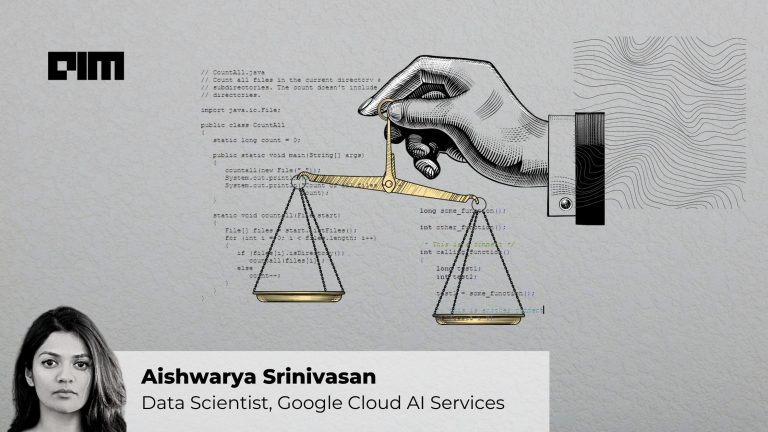Enterprises are making huge advancements in artificial intelligence landscape but are struggling to explain the decision-making process of neural networks. Such uncertainty is slackening the development in the tech field as organisations are worried about its potential misuse.
On the other hand, customers do not desire to obtain products that deliver mysterious outputs. To address such pressing issues, various firms are working towards clarifying outputs by interpreting how machine learning models are making decisions.
The idea with Explainable AI is to build trust among users and gain confidence about the products organisations develop using these models.
Google’s Explainable AI
Google for long has been working on explainable AI and now has finally released the service through its cloud offering. The service quantifies the contribution of each data point in the outcomes of various models. This will enable developers to further improve the performance of models and gain desired results. However, Google’s Explainable AI results will not be straightforward, thereby, requiring data scientists to understand those analyses.
Since the service is new, it is limited to only a few types of ML models and will be highly dependent on the nature of models and type of data used for delivering results. Besides, the service still has shortcomings, thus it will not be as transparent as once may expect. Consequently, Google in their blog mentioned that, they are striving for enhancing the services to provide a superior experience.
IBM OpenScale
IBM offers the explainable AI service with OpenScale. It not only clarifies how the model is working but also assists in fixing problems associated with it. Leveraging their services, one can check for bias in models and mitigate them with OpenScale service. IBM’s mission is to govern AI after understanding the reasons behind model outcomes.
In a continuous attempt to solve the black box problem, IBM is providing insights into AI health, recommending next steps to improve outcomes. They are enabling organisations in taking AI to the next level with Watson OpenScale.
With OpenScale service, IBM is helping regulators, leaders to understand why their credit risk models are making specific recommendations. And also ensuring models are running without bias against certain groups.
For such dexterity, IBM was facilitated with the innovation award for debiasing and explaining AI outcomes.
Go through this research to understand how IBM has devised the strategy for explainable AI.
Fiddler Labs
Unlike others, Fiddler Labs provides a wide range of solutions like understanding model predictions, analyse model behaviour, and monitor model performance. Along with SHAP and integrated gradients, the firm’s patent-pending modus operandi makes explanations fast and reliable. Such feature-rich solutions allow various organisations to underline discrepancies in machine learning models, resulting in providing a better understanding of predictions made by their AI-based solutions.
Besides, Fiddler Lab’s engine empowers businesses to ensure whether ML-based models comply with industry regulations. Such capabilities make it a must-have solution for several companies to derive insights into their machine learning models.
To further enhance Fiddler Labs’ offerings, the company has raised $10.2 million in September as a part of its Series-A funding. Backed by a team of engineers and data scientists from blue-chip companies like Facebook, Google, Microsoft, and more, the firm is devoted to making further breakthroughs in the Explainable AI landscape.
Microsoft InterpretML
Addressing the increasing concern of AI applicability due to uncertainty in the results, Microsoft has released InterpretML. The firm is trying to pinpoint the primary factors that are driving decisions for ML models.
Today, firms are actively deploying ML models in their products, but in the case of bias, it is difficult to find the culprit. This has caused anxiety among regulators, as a result, they get perplexed while devising regulations.
Microsoft believes that to ensure compliance with industry standards, government regulations, and in-house policies, firms need to know what they are offering, and how the product works. Leaving the development of technology by chance can be deadly, thus they are offering services through Azure to enhance the capability of businesses by effectively interpreting the behaviours of ML models. The features in their services include Tree Explainer, Deep Explainer, Kernel Explainer, among others.
Kyndi’s Explainable AI
Kyndi’s assists in tracing the process and validating the outcomes to purvey the underlying factors for certain action by ML models. Unlike other services, Kyndi’s product can find answers in the text due to its ability in analysing long texts in documents, reports and emails.
Due to their superior products capability, they were further able to add $20 million in Series B funding for accelerating growth. The company is committed to bringing transparency for increasing trustworthiness, accountability as these are the building blocks of any organisations.



















































































